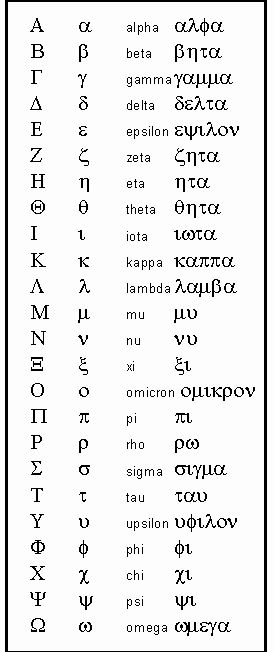 Symbols (letters) that compose a language.
Symbols (letters) that compose a language.
The word, alphabet, comes from the names of the first two letters of the Greek alphabet, i.e. alpha and beta; the 24 letter Greek alphabet is credited to Kallistratus (Callistratus) of the island of Samos.
Originally, the Greek alphabet had nineteen letters and employed no accents when written. After circa 403 BCE, the various dialects were replaced by Koine, i.e. common pronunciation.
The dialects used by the ancient Greeks included::
Epic (used by Homer);
Ionic (used by Herodotus);
Doric (used in the Attic choral songs) and
Aeolic (used by Sappho).
The Athenians finally refined a form of the Ionic dialect which eventually became known as Koine.
The noted educator, John Taylor Gatto, has some interesting insights into the importance of the Greek alphabet on his web site http://www.johntaylorgatto.com/odysseus.htm; he suggests that the Greeks recognized that a “revolutionary power could be unleashed by transcending mere lists, using written language for the permanent storage of analysis, exhortation, visions, and other things. After a period of experiment the Greeks came up with a series of letters to represent sounds of their language. Like the Phoenicians, they recognized the value of naming each letter in a way distinct from its sound value”; thus, Greek letters like “beta” might represent a “bee” sound but, when reciting the Greek alphabet, beta is intoned as “vetta”; this is comparable to English speakers using an “F” to represent a “fa” sound but, when we recite the English alphabet, we pronounce it as “eff.”